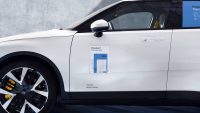 A recent google aftermarket report showed that non-dealer third party retailers like Halfords, Kwik Fit and Mr Clutch took 50 per cent of the overall aftersales market due to better price, location convenience or brand loyalty.
A recent google aftermarket report showed that non-dealer third party retailers like Halfords, Kwik Fit and Mr Clutch took 50 per cent of the overall aftersales market due to better price, location convenience or brand loyalty.
This is not great news for a struggling motor retail sector. However, there is a lot for dealers to be positive about.
The same survey from google found 55 per cent of consumers still preferred dealerships over independents and other retailers because of their specific knowledge and expertise. So what we have here is more a problem of trust and brand than a lack of ability to execute.
It seems there is an innate desire for consumers to buy aftersales services from dealers but they just don’t have that relationship or connection with their customers to stop them from straying to third parties. Dealers are perceived to be the experts but there are problems in how a consumer perceives a dealer in terms of price, brand and ultimately trust.
The problems are many. There are varied levels of services on offer from main dealers and an even more varied level of awareness of those services on behalf of the consumer.
If this is compared to say Kwik Fit it is very clear in the consumer’s mind they do exhausts, tyres, brakes and MOTs. This is often down to poor lifecycle marketing and badly administered customer relationship management by the dealership. A dealer should know when a service is due, what parts are typically required and more importantly, who the customer is. When I write ‘who the customer is’ I don’t just mean their name and address, I mean recognition of the fact they have purchased a high value good from the dealership in the past.
Another factor is the technology to automate a lot of the CRM headache has not really existed. Sure there are numerous DMS, CRM and lifecycle marketing tools out there but they rarely talk to each other and simply create islands of disjointed information throughout the dealership. This means the true value of customer data is left untapped and relevant, targeted information rarely reaches the captive market.
To see how technology can be used effectively to build brand loyalty and lifecycle marketing we can look at Apple’s iTunes or Amazon’s customer portal. Your personal information is stored in an accessible web account which includes past purchases, credit card details and detailed profile data. This is then used by the retailer to target you with relevant products and services.
It works. This sort of technology will be applied to the motor retail sector to tie up all the loose ends surrounding DMS and CRM records and provide live reminders to customers regarding MOTs, servicing and targeted promotional offers that they find useful, not irrelevant or annoying.
Technology is being used by the biggest and best companies in the world to open themselves up to the consumer. They not only provide quality products and services, they create a two-way communication that engenders trust and creates a relationship. From this relationship comes loyalty and ultimately revenue from the consumer. It’s time for this to happen in motor retailing.
 Who is Tim Smith?
Who is Tim Smith?
He is commercial director for serial award winners GForces. Learn more about how he can help you at gforces.co.uk or call 0845 658 9290






 Who is Tim Smith?
Who is Tim Smith?

























